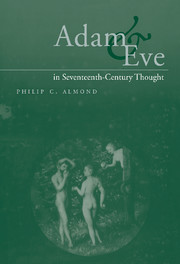3 - The quest for Paradise
Published online by Cambridge University Press: 18 November 2009
Summary
A PARADISE WITHIN
And the Lord God planted a garden eastward in Eden; and there he put the man whom he had formed.
Genesis 2.8 (Authorised Version)Plantaverat autem Dominus Deus paradisum voluptatis a principio; in quo posuit hominem quern formaverat.
Genesis 2.8 (Vulgate)The translators of the King James version of the Bible read Genesis 2.8 as locating the first Paradise or Garden in an historical place and time. In this, they firmly set themselves against those who had read the story of Adam and the garden Paradise as having only an allegorical meaning. And they were clearly indicating the primacy of the historical reading of the story. In so doing, they put themselves at variance with the Latin translation that Jerome had made in his Vulgate. For the Hebrew rendered as ‘a garden eastward in Eden’ in the King James version had there been rendered ‘a paradise of pleasure from the beginning’.
The Hebrew itself is ambiguous with regard to the meaning of the word 'eden, and also with regard to ‘Miqqedem’, which can mean ‘from the East’ or ‘from the beginnings of the earth’. The Greek version of the Old Testament, the Septuagint, reflected this ambiguity, rendering the Hebrew as a ‘paradise eastward in Eden’ in Genesis 2.8, but as a ‘paradise of pleasure’ in Genesis 3.23 and 3.24. Where the Hebrew was ambiguous and the Septuagint ambivalent, the King James version consistently chose the historically particular, which rendered more difficult an allegorical reading, over against the Vulgate's less particular translation, which rendered more feasible an allegorical reading.
- Type
- Chapter
- Information
- Adam and Eve in Seventeenth-Century Thought , pp. 65 - 109Publisher: Cambridge University PressPrint publication year: 1999

